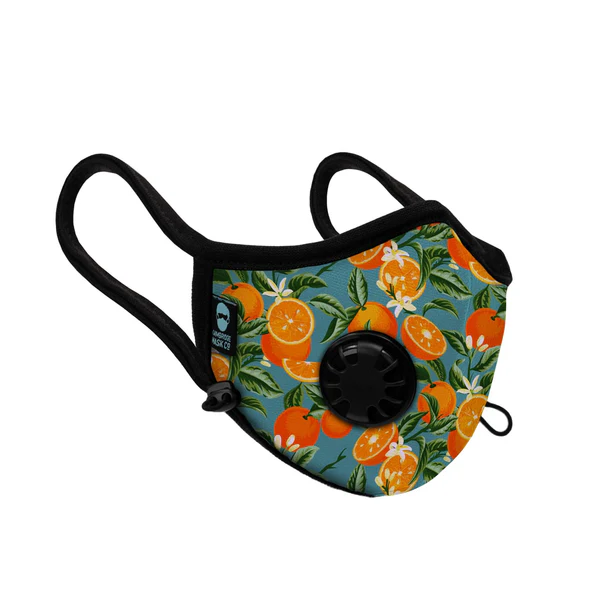Masks for Multiple Chemical Sensitivity: A Comparative Guide
Multiple Chemical Sensitivity (MCS) is a condition in which individuals experience adverse reactions to low levels of everyday chemicals, such as perfumes, cleaning products, and pollutants. For people with MCS, wearing a mask can be a lifeline, providing essential protection against environmental triggers. With the COVID-19 pandemic, the demand for masks surged, resulting in a proliferation of options, including those tailored for MCS. This expanded selection has made finding an affordable and effective mask easier, but the diversity can also feel overwhelming. Below, we compare three popular MCS mask options, evaluating their comfort, effectiveness, and materials.
1. I Can Breathe! Organic Cotton Mask
Materials:
The I Can Breathe! mask is made primarily of organic cotton, a material highly valued by people with MCS due to its natural composition and hypoallergenic properties. It is free of dyes and synthetic fibers, minimizing the risk of chemical exposure.
Comfort and Fit:
This mask is soft, lightweight, and breathable, making it comfortable for extended wear. The adjustable ear loops and pliable nosepiece enhance the fit without causing irritation.
Effectiveness:
While it effectively blocks larger particles like dust and pollen, this mask is less suitable for environments with strong chemical odors, as it lacks activated carbon filters. However, its organic cotton construction provides peace of mind for those who react to synthetic materials.
2. Vogmask
Materials:
Vogmask combines synthetic materials like microfiber with a layer of activated carbon. While the mask contains some non-natural components, the activated carbon is essential for neutralizing odors and chemical vapors.
Comfort and Fit:
This mask is ergonomically designed with a contoured shape and elastic ear loops, providing a snug fit. It is relatively lightweight, but some MCS users may find the synthetic materials irritating against their skin.
Effectiveness:
Vogmask offers excellent filtration, effectively reducing exposure to fine particulates and some chemical fumes. Its activated carbon layer is particularly helpful for people exposed to urban pollution or chemical cleaning agents. However, the synthetic materials may be a drawback for those who prioritize natural fibers.
3. Cambridge Mask
Materials:
The Cambridge Mask combines natural and synthetic materials, including a fabric outer layer and an internal layer with activated carbon and antimicrobial agents. It is not an organic product, but its filtration efficiency makes it a popular choice.
Comfort and Fit:
This mask is slightly heavier than others, due to its multiple layers. While the ear loops are adjustable, the bulkier design may feel restrictive for some users.
Effectiveness:
The Cambridge Mask is one of the most effective options for filtering out chemicals, pollutants, and allergens. Its activated carbon layer provides robust protection, making it ideal for people who need strong odor and particle defense. However, its reliance on synthetic materials may be less appealing to users seeking natural options.
Choosing the Right Mask
The variety of MCS-specific masks available today is a direct result of the post-COVID-19 mask boom. As manufacturers expanded their offerings, prices dropped, making it easier for people with MCS to experiment with different options. Since individual sensitivities vary, it’s essential to try multiple masks to find the one that balances comfort, effectiveness, and material preferences.
For those prioritizing natural fibers, organic cotton masks are an excellent starting point. However, masks with activated carbon layers, like Vogmask or the Cambridge Mask, provide superior chemical filtration, even if they include synthetic components. The cost of these masks is relatively low compared to their health benefits, making them an accessible investment.
Conclusion
Masks for MCS have evolved significantly, offering tailored solutions to protect sensitive individuals. Whether you choose the purity of organic cotton or the advanced filtration of activated carbon masks, the key is finding a mask that fits your specific needs. Post-pandemic market growth has not only expanded choices but also underscored the importance of these tools in improving the quality of life for people with MCS. With so many affordable options available, exploring different masks is a worthwhile endeavor for anyone navigating the challenges of chemical sensitivity.


